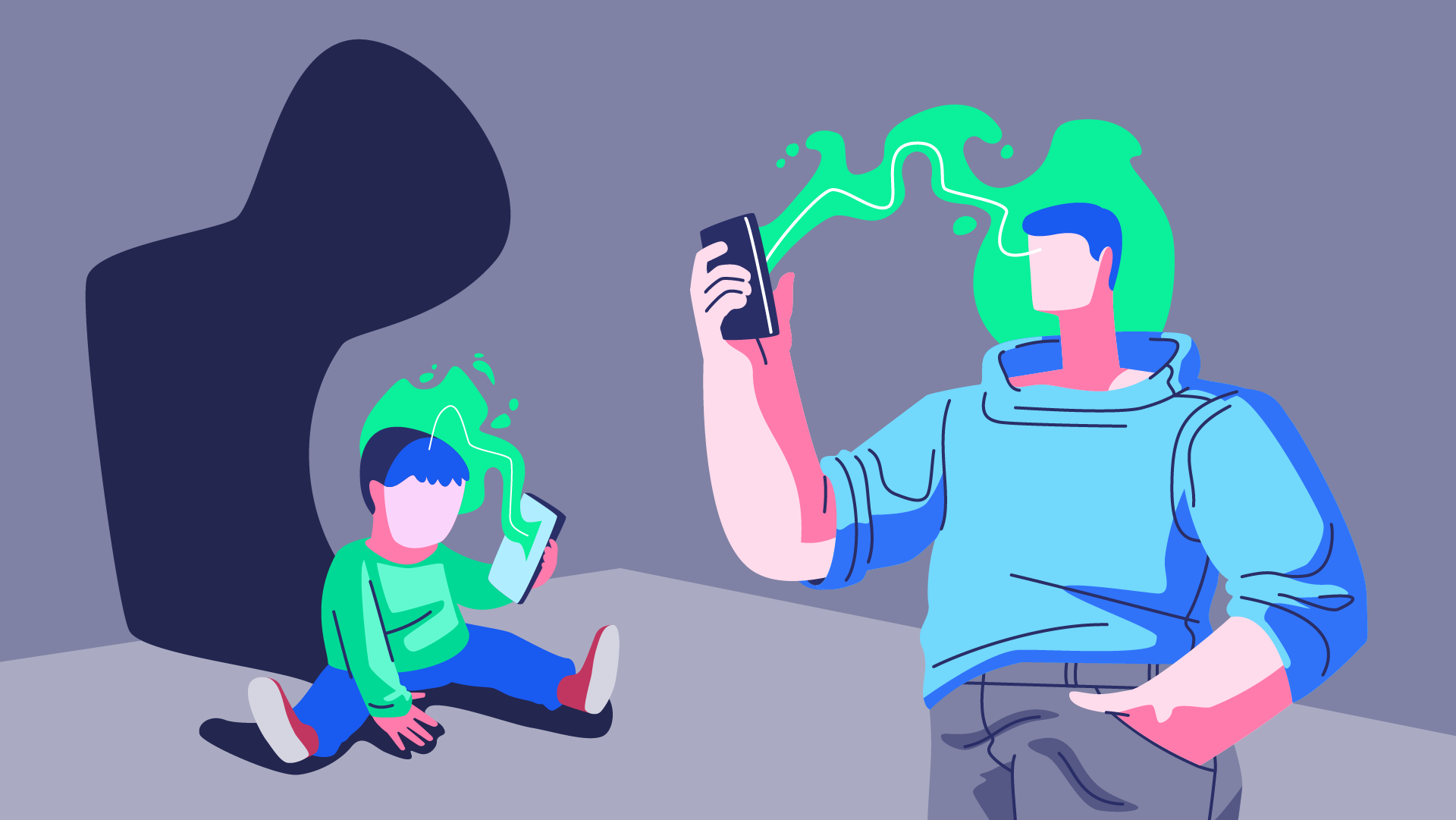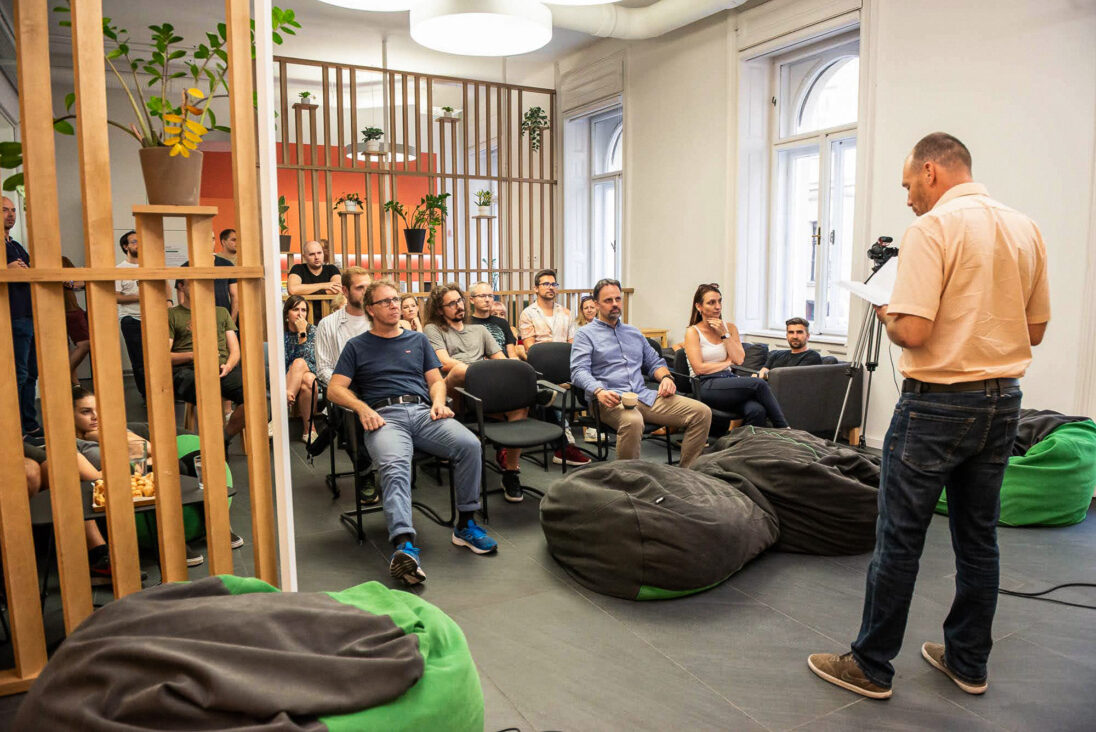It’s Not Just My Kid Who’s Always on the Phone – I Am Too

What Are We Really Fighting Against?
Not against technology – I’m using it right now to write this article, and you’re using it to read it.
Technology itself is not the enemy. But the moment it starts making decisions for us, speaking about us – or even using us – it’s time to reflect. At that point, it’s no longer just a tool; it becomes the main distraction from our attention. And it begins to take a toll on our relationships.
The real challenge is to reclaim control over ourselves:
- To understand what steals our attention.
- To talk honestly about it with one another.
- And to become present again – with our children, our partners, and ourselves.
Books, Silence, Slowing Down – and the Weight of Reality
To start the conversation, I read an excerpt from Máté Kapitány-Fövény’s book Addiction with a Thousand Faces – offline, from a physical book. It was a slow, inward-turning introduction, already in stark contrast with our usual pace.
Then came the real-life examples, which were not so quiet:
Every morning there’s yelling when it’s time to put away the tablet.”
“Sometimes my kid says: ‘Mom, you’re always on your phone too.’”
“My son is a Fortnite champion, but won’t even talk to us when it’s time for his math homework.
These are not statistics – they’re everyday sentences. A shared reality.
“Gamer Diaper,” Neuroplasticity, Baby Shark – and Ourselves
Throughout the discussion, terms like neuroplasticity (the brain’s ability to rewire itself), digital trance, and “gamer diaper” came up – the latter becoming a symbol of parental shock.
We also talked about how this dependency affects not just children. Many of us find it hard not to check our phones when we have just five seconds of downtime.
But change shouldn’t be driven by guilt – guilt paralyzes. Slowing down, being present, and connecting honestly, on the other hand, gives us strength.
What Can We Do? – A Few Practical Tips Shared
- Eye contact in the mornings
Let a human face, not a screen, be the first thing you see. - Offline zone at home
A shared, designated space where no devices are allowed. - Phone-free zones
For example, during meals or before bedtime. - Family digital journal
A small notebook where everyone can jot down how they feel during or after screen time. - Holding up a mirror
Talk to each other when someone seems too absorbed in the screen.

A Company That Takes the Future Seriously
That’s why we organized a meetup at Virgo, where I spoke to a few dozen colleagues about tech addiction. It turned into a deep, shared process, confirmed by many personal reflections since.
I didn’t speak hypothetically, nor did I give a light-hearted presentation. Sure, there were some laughs and humorous comments, but our own experiences, our children’s futures, and our shared anxieties painted a rather somber picture.
How could we possibly compete with the world of illusions created by Fortnite, where our kids experience daily highs that reality can hardly replicate?
I read a short, literary excerpt at the beginning of the talk about this very dilemma – again, from Kapitány-Fövény Máté’s Addiction with a Thousand Faces. Reading it live, from a real book – it helped us slow down and arrive in the moment.
Smoking, alcoholism, cocaine, screen addiction, gamer diapers, Baby Shark Dance and Despacito, Cro-Magnon hardware, neuroplasticity, and the National Tobacco Shop – these were just some of the things we touched on.
There’s no magic bullet. We need to slow down and become more mindful. And guilt only gets in the way.
It’s remarkable in itself that a company leading in the use and development of technology allows a topic like this to be brought within its walls and into the lives of its people.